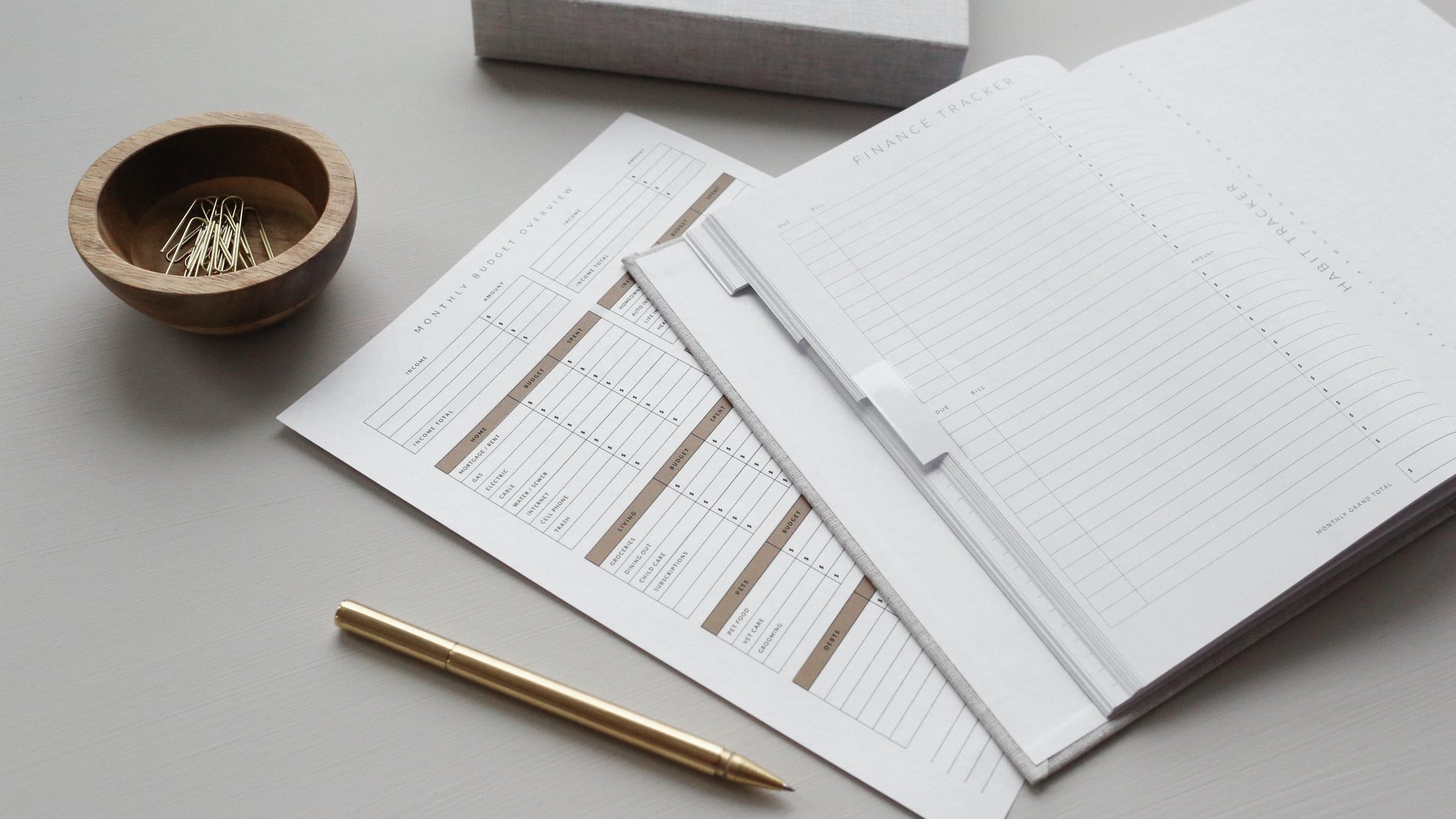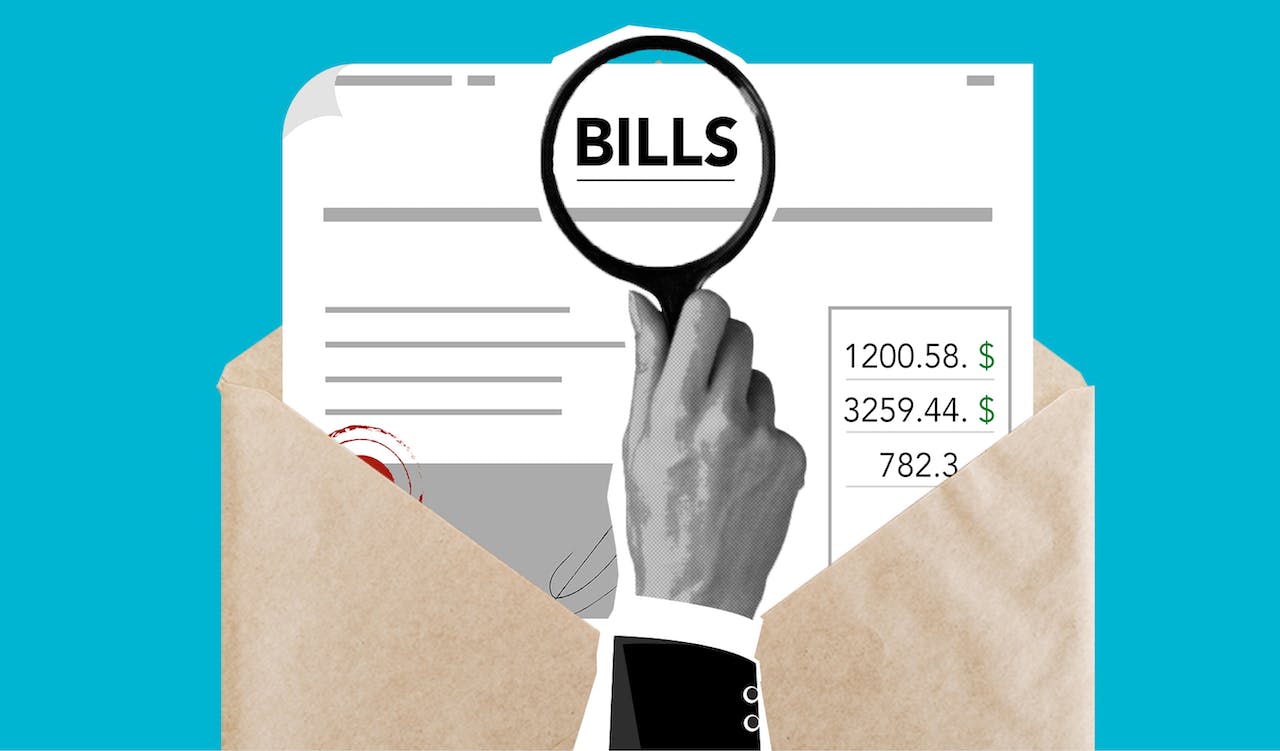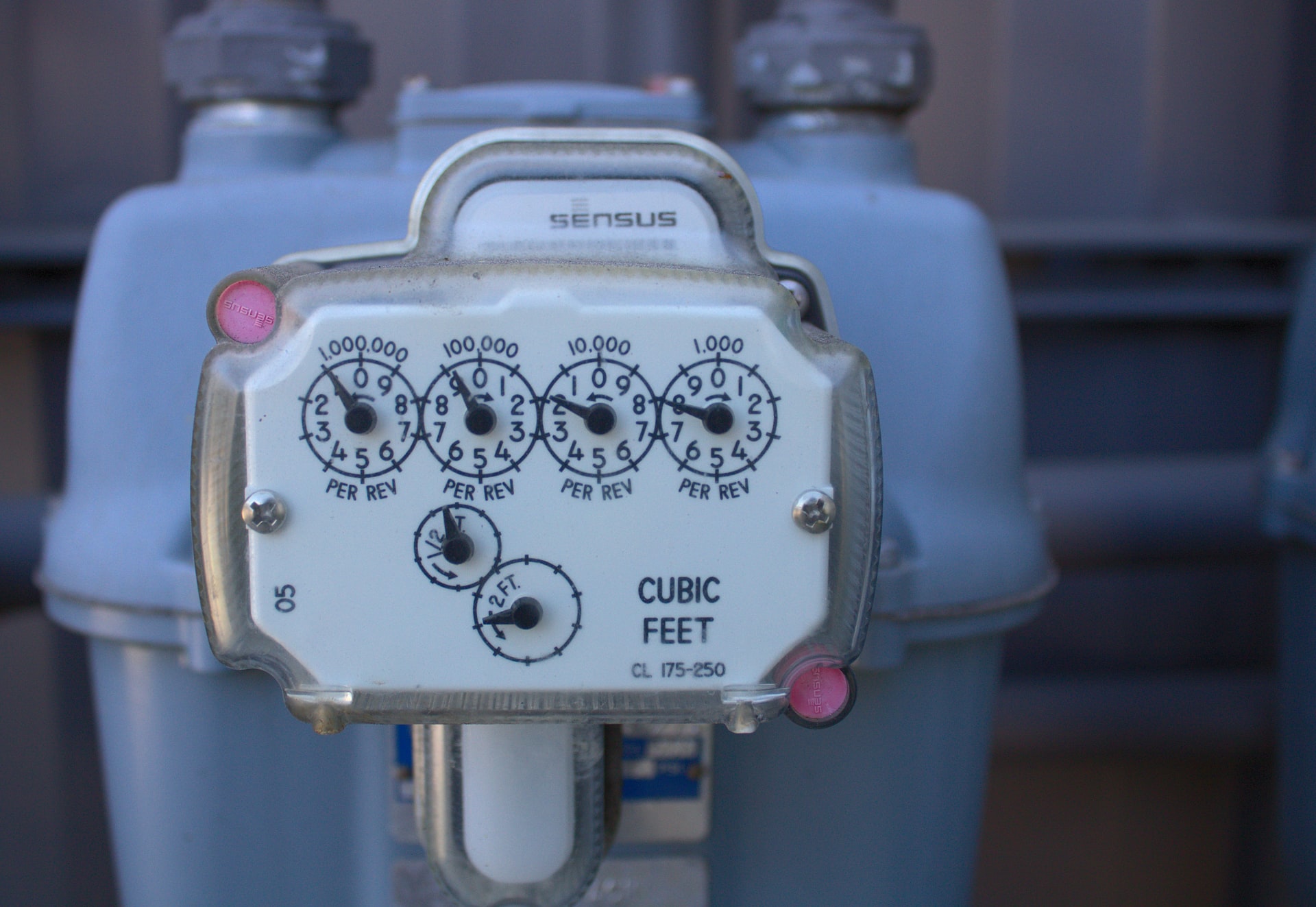Keeping track of a budget can be challenging; it doesn’t matter if you live alone, with your partner, or with family. Managing your household finances can be overwhelming as there are a lot of expenses we need to keep track of, like utilities, food, transportation, medical, savings, insurance, etc. But it won’t be that hard with the right tools and organization. There are many tools that can help you, like apps, organizing tips, and traditional filing systems that will make your life easier.
We asked some of the best on the topic to give their advice on how to handle household budgeting successfully. These are their best tips.
What are the benefits of setting a financial goal each year?
Setting a financial goal each year can have many benefits. It can help you stay on track with your finances, force you to be more mindful of your spending, and give you something to work towards. Having a financial goal can also help keep you motivated to save money and make wise choices with your money. Setting a financial goal each year is a great place to start if you’re looking to get your finances on track.
5 Steps to setting a financial goal
- Determine what you want to achieve financially. This could be saving for a down payment on a house, paying off debt, or setting aside money for retirement.
- Figure out how much money you will need to reach your goal. This number will be your financial goal for the year.
- Make a plan to reach your goal. This could involve setting up a budget, cutting back on spending, and increasing your income.
- Stay on track by monitoring your progress and adjusting your plan as needed.
- Celebrate when you reach your goal!
Setting a financial goal each year can help you achieve your financial dreams. You can make significant progress toward your goals by setting a goal and following a plan. So what are you waiting for? Get started on setting your financial goals today!
Rick Orford from Rick Orford
How can students prioritize their spending and savings goals within a budget?
Paying for necessities like rent, tuition, and groceries will help students prioritize spending and saving objectives within a budget. Once all the expenses are covered, you can spend the remaining income on extras like entertainment. It’s crucial to keep track of your spending, look for student discounts where available, and periodically regularly review and adjust the budget to align with financial goals.
Julia N from Rentler
How to lower your consumer cellular bill?
The best way to lower your Consumer Cellular bill is to see if you’re overpaying on data. Unlimited plans are $55 a month, while lower gig plans can be as low as $10 a month. Based off our negotiations with Consumer Cellular, most clients use less than 10gb of data a month.
Other than, good ways to save include connecting an AARP account if you have one for a 5% monthly discount or even switching to a different prepaid provider like Visible or Mint Mobile who have even cheaper plans than Consumer Cellular.
Allison from BillSmart
What’s the secret to a Debt-Free retirement?
Retiring debt-free provides retirees a unique comfort, allowing them to spend their nest egg as they please instead of budgeting for outstanding financial obligations.
There’s no one secret to living a debt-free retirement, but consider these three tips to help you get there:
- Commit – Achieving and maintaining a debt-free retirement requires a firm commitment leading up to and long after your retirement date. Debt tempts us relentlessly, regardless of where we are in our financial lives. Commit, and stick to it.
- Plan – Eliminate all existing debt, including consumer, car, education, and mortgage debts. You may need a pay-down plan for more significant debts, so find an online calculator or make a spreadsheet and estimate the payoff date. Then save cash to cover large future expenses, such as your next car or appliance. Do these things before you retire.
- Reduce Needs – A powerful strategy to stay debt-free is to want less. Be content with what you have and avoid buying a larger house or fancier car. Large expenditures often require borrowed money. Prioritize spending based on what brings you the most happiness, such as travel, family, or charity. Direct your spending toward people and experiences instead of bank payments.
Craig Stephens from Retire Before Dad
What is the best advice you would give someone who wants to start their family budget?
Many people make a big mistake when they start trying to budget…they just pick numbers out of the air!
To create a budget that sticks, the first step is to track your expenses and review them.
This will help identify where the problems are and pick reasonable budget targets instead of drastic ones that are doomed to fail.
For example, if someone wants to lower their food spending to $800 per month, that’s doable if they’re spending $1,000. However, if they’re actually spending $1,500/mo and don’t realize it, that $800 budget is unrealistic unless they set it knowing that they are going to have to change everything about their food habits.
Rob Bertman from Family Budget Expert

What is the best advice you would give regarding saving money on a low income?
One high-yield way to save money when you have a low income is to target recurring necessary expenses such as your phone bill or your Internet bill. A quick call with the customer service representative for your Internet or Mobility bill provider can save you hundreds of dollars per year. Often they don’t want to lose you as a long-time customer so have special time-sensitive retention offers that they can provide you, often without signing up for another contract.
Set a reminder on your phone to call again to negotiate before your limited-time offer expires. One call can save over $700 a year on your Internet bill, and another phone call can save over $500 a year on your cell phone bill.
What is the best way to manage your money?
One of the best ways to manage your money is to carefully track every incoming and outgoing cent for 3 months. After 3 months, you should have enough data to create an “average” for each spending and income category. Once you have a better idea of what your money is doing, you can look at the bigger picture: How much can you save while not sacrificing too much of your lifestyle?
This is the point where you can develop a monthly budget with realistic goals while building a savings strategy. First, you should have between 3 to 6 months’ worth of living expenses in cash. Even if it takes you several months to accomplish your savings goal, consistently save – this is where a long-term focus can really pay off.
Once you’ve accomplished your emergency savings fund goal and have presumably paid off high-interest debt, you can start investing your extra cash. For beginner investors, you may want to consider investing in the S&P 500 index fund because it’s low-cost and it has shown proven results over the past 50+ years. As you become more comfortable and knowledgeable with investing concepts, you can start diversifying your portfolio.
Fiona from The Millennial Money Woman
How to create healthy financial habits
Creating healthy financial habits isn’t just about knowing the information. Of course, the first step is to learn what you need to do, but most of the success and failure in finances comes from behavior, not knowledge. The reason people say “money doesn’t solve money problems” is because you have to know how to apply the information you learn. Otherwise, you’re not going to get out of a bad situation and you’re likely to get into a worse one. Creating these healthy habits comes down to self-awareness. If you know you don’t have a great memory and you’re not the most disciplined person, automation will be your best friend. You can automate almost every part of your budget and monthly spending. If you consider yourself a disciplined person and you want to see where every penny goes, you’ll want to use an app or a spreadsheet to track all of your money.
When you get advice on which habits to create and how to create them, keep your personality in mind. You have to mold the advice to fit your life and your current habits. Successful habit change always starts small. Just take the first step.
Kalen Bruce from Money Mini Blog
How to start investing when having to support your family
Investing doesn’t ever need an all-in approach and that’s especially true when you have other commitments for your money. Raising and supporting a family can be a big expense and can take a big bite out of your paycheck but often you can still save a little bit each month and make sure your future self and your family will thank you.
The best way to go about this is to automate investing as much as possible. As a starting point, try to contribute to your 401k up to at least the company match. The 401k is a pre-tax investment account meaning your dollars go further since your company won’t withhold taxes on those dollars meaning a $100 investment into your 401k won’t reduce your paycheck by $100 but a smaller amount. Plus, often, companies will match your contributions up to a certain amount. If you can take advantage of that then you’re essentially doubling your contributions which is a massive help even if you’re saving a small amount. Automating savings via your paycheck also means that you’ll get used to living on a slightly smaller amount which is key to saving on a tight budget. If you don’t see the money then you won’t spend it. Now that can be difficult on a tight budget but the fact that you’re essentially doubling your investments via the match and getting the benefit of future growth should be an incentive to try to find some savings in your budget.
It won’t be easy but trying things like shopping at a cheaper supermarket like Aldi’s, buying in bulk at Costco, or trying to find items on buy nothing groups can help in making those dollars go a bit further. These aren’t the only things you can do as there are a variety of ways to cut spending but many are specific to the type of spending you may have and what you’re able to reduce/cut.
At the end of the day, expenses and savings go hand in hand so reducing one(expenses) can help the other(savings).
Still when it comes to savings, automating is huge and can also help even if your company doesn’t offer a 401k or if you want to save more. An IRA functions much like a 401k and can be automated to take some money out of your checking account. However, in this case, there won’t be a match so it’s not as amazing a deal as a 401k. A Roth IRA is a good fit if you don’t qualify for an IRA due to having a 401k and income limitations. In this account, you pay taxes upfront but don’t pay taxes when you take money out. A 529 account may also be valuable if you’re trying to save money for your children’s future schooling.
In each case, the best tool to guarantee savings is to automate them because it forces you to save and re-allocates your priorities putting saving for your family’s future first. It creates a new level of income that you can work off of, an income post savings that will force you to adjust to a different lifestyle. This can be hard if your income is low but can also help you prioritize spending in a different way and perhaps drive you to improve your income. None of these things are easy to do but they are important in the grand scheme of things.
How to handle finances as newlyweds
Newlyweds face many financial questions they may not have discussed when dating or in the engagement before marriage. Newlyweds should initially consider and think through three areas. First, how do you handle banking and expenses? Most newlyweds combine bank accounts and share expenses 50:50. However, not all new couples follow this method. Instead, some keep their finances separate and decide on joint bills. Others maintain individual accounts and start a joint account for shared expenses. Next, newlyweds must create a combined budget with goals. Past costs may have been individual, but future costs may be more significant and shared, like buying a house and require planning.
Setting goals is an essential part of budgeting for newlyweds. New couples should also ask themselves how to handle debt. Young families often have student debt, credit cards, and car loans that need to be paid. How will they allocate debt, and when is the target date for reducing it to zero. Third, newly married people should seek to combine health, disability, and life insurance. One spouse may have better plans with more benefits and lower costs offered through their employer. Married couples may also get discounts on auto, home, and long-term care insurance.

Approximately how much money does a smart thermostat save?
Smart thermostats can save between 10-25% per year in residential energy costs, and the dollar amount saved depends on local energy rates and whether the heating is electric or gas. Smart thermostats’ ultimate energy savings comes from the scheduling that you can do, to save energy when you are not home or at night. But there are advanced features that really drive additional savings, as well as make them fun to integrate into your home. For example, most smart thermostats have the ability to detect when you are home or not from your cell phone, helping the thermostat to do advanced savings without your input.
Jamie Johnson from Verde
How does a smart thermostat save you money?
Smart thermostats will learn your daily habits to be able to predict how to most efficiently heat and cool your home. When you’re not at home, the smart thermostat will turn the temperature lower to save you money. When you are at home, it will keep your temperature at a comfortable level based on your past temperature preferences. Smart thermostats save you money automatically. You won’t have to think about what the best settings are to save on your energy bills.
Michael Hoyt from Life on AI
How to survive when the cost of living goes up
The first step is to do a total financial review. Compare all your bills, get fresh quotes for your various insurances, phone, electricity, all of it to make sure you are getting the best deal you can on everything. Also check you have applied for any VIP programs, bonus points, or discounts you might be eligible for. This also includes reviewing your banking and any debts. It’s time to get real about them, stop paying fees, and make sure you are getting rid of those debts as fast as possible.
Next, check your actual spending habits, not what you think you are spending. Go over your bank statements and see how much you truly spend on groceries, eating out, and other things that are easy to blow the budget on. Look at all the ways you can cut back here.
Set a fresh budget or spending plan that is realistic and includes some splurge/sanity/fun money for yourself otherwise you’re more likely to blow the budget as you feel too restricted.
Lastly, once you have all that sorted, check all the ways you can bring in more money. There are so many ways to make money from renting out a room or your garage, to cleaning, yard work, online gigs such as virtual assistant, transcribing, and more.
Kylie Travers from The Thrifty Issue
What is your best tip for managing money during hard times?
We’ve all experienced hard times. Maybe a job loss, unexpected medical expenses, or just struggling to cope with the COVID-19 pandemic. Hard times challenge our finances, and this increases stress and anxiety. We’ve shared tips on financial planning before. But even the best laid financial plans can go awry. Here’s our best advice for managing money during hard times.
- Cut out unnecessary expenses.
You might not have thought that the cup of coffee and bagel you buy every morning is expensive – but after tracking your spending, you see how costly this habit is. Now you’ve got to make the sacrifice and cut it out. Until hard times are over, you’ve got to commit to making coffee and breakfast at home.
Hard times are mentally and emotionally draining. In the past, you could spend money without worrying about where every cent went. We know it can be exhausting to live by holding the purse strings tightly. However, remember that this is an investment in your future self. By making the hard decisions now, you are making your future brighter. You will come out of this better and mentally stronger! But for now, you need to focus on managing your money.
Alysa-Marie Sealey from The Maritime Financial Group
How to have a good budgeting plan while in college
The key to a good budgeting plan during your college days is the same as with any other budget throughout your life. The core principles remain setting clear and realistic financing goals for yourself, depending on your income and earnings from your job or jobs. Avoid racking up debt on your credit card, and find ways to save up and keep some money on the side for emergencies and unforeseen circumstances.
If you’re a parent of a kid going off to college, it might be best to start them off with a moderate weekly allowance that covers the basic necessities and requires them to rationalize their spending if they want occasional treats.
What are the best ways to save money on groceries?
If the food prices are out of control, don’t be surprised because it is not always about the higher prices. Going to the grocery store can exhaust your budget only when you don’t plan out the budget wisely!
If you are feeling a pinch while shopping for groceries, read the following tips to help you.
- Making a grocery list and sticking to it can help curb the urge to spend more than planned. Consider shopping alone. That way, kids don’t have to lobby for items that aren’t on the list or in the budget.
- Plenty of apps out there make it easier to cut the cost of grocery shopping and keep cash in your wallet. Looking for apps that can help reduce grocery costs. Use some or all and get more for less at the supermarket.
- Using the discount and coupon codes wisely helps you save more money if you dine in or use them. Don’t forget to check the expiration date of the coupon.
- Holidays such as Christmas, Valentine’s Day, Easter, and Halloween are known for candy sales. If you’re looking for a lower price, head to the Clearance section to shop after the holidays.
- Learn about supermarket layouts. The store’s perimeter (or outer aisle) is typically lined with fresh vegetables, fruit, fish, lean meats, eggs, and low-fat dairy products. Head to the inner gallery for other nutritious staples like cereals, beans, nuts, seeds, peanut butter, and whole grains.
- Purchase in Season. Vegetables and fruits are cheaper during the season. Save money by buying fresh fruit in various stages of ripeness.
Linda Haynes from Revounts
What is your best advice when creating a budget?
Knowing why you are creating a budget will make it easier to follow through. When you understand why it becomes your mission statement and a goal you want to keep. You then try harder not to spend money that you don’t have.
It also lets you be more honest when listing out all your monthly expenses. Sometimes we like to hide a few easy-to-spend items. If money is truly tight, dropping your gym membership or daily latte will be much easier to pay off a few bills more quickly.
Remember, some changes are not meant to be permanent but temporary.
Jennifer Schreiner from Inspiring Savings
What is your best advice for knowing your outgoings?
Tally up all the different bills you have to pay. Don’t forget mortgage/rent, utilities, insurance, groceries, car payments, phone contracts, Internet/TV service, etc. Add them all up and make sure the money coming in is more than what’s going out. If it’s not, you will need to find a way to reduce your outgoings!
This is also a good opportunity to review your bills. Could you switch to a cheaper energy provider? Are you spending money on things you don’t need? Review every transaction and consider if you can get a better deal. Compare broadband and TV deals to reduce your monthly outgoings/expenses.
Emma from Bee Money Savvy
How many budget categories should be considered, and what’s the best approach for managing one-time expenses within a budget?
Creating a personal budget is the most important first step to getting your finances in order. Starting out, you don’t want to overwhelm yourself and get burned out before even getting started. I would suggest keeping it to a select few to start: discretionary, savings, investing, insurance, housing, cars, and food. From there, as you gain confidence and start tracking your spending, you can create more categories and sub-categories to get a more granular look at where your money is going and where you need to allocate it.
Andrew Schrage, CEO from MoneyCrashers.com
Household budgeting can be scary and intimidating, but with the right tools and organization tips, you can take your household finances to the next level, make it part of your monthly routine and even save money!




